Can Addiction Be Cured?

Understanding Addiction: A Chronic, Manageable Condition
Addiction is a complex and often misunderstood condition that affects millions of individuals globally. Characterized by compulsive substance use despite harmful consequences, addiction alters brain chemistry, making it difficult for individuals to quit without help. The journey to recovery is arduous and ongoing, as addiction is classified as a chronic disease comparable to diabetes or heart disease. While a definitive cure for addiction does not exist, effective treatment and management strategies provide hope for those seeking to reclaim their lives.
What Does it Mean to Cure Addiction?
Addiction as a Chronic Condition
Addiction is recognized as a chronic disease by major medical organizations like the American Medical Association. Similar to other chronic conditions, such as diabetes and heart disease, it cannot be completely cured but can be managed effectively. This classification emphasizes that addiction is a long-term condition, requiring continuous management and support.
Difference Between Cure and Management
While treatment for addiction exists, the concept of a ‘cure’ is misleading. Addiction alters brain structures responsible for decision-making and pleasure, leading to lasting changes even after substances are discontinued. Thus, cravings may never fully disappear, making individuals susceptible to relapse. Treatment strategies—including behavioral therapy, prescription medications, and participation in support groups—focus on managing addiction rather than curing it.
Effective treatment involves a personalized approach, addressing both psychological and physiological factors. For instance, combining medications like Naltrexone with counseling can help manage cravings without eliminating the condition itself. Professionals use diagnostic criteria such as DSM-5 to evaluate and tailor treatment plans for effective recovery, emphasizing a holistic strategy for overcoming this chronic disorder.
Available Treatment Options for Addiction
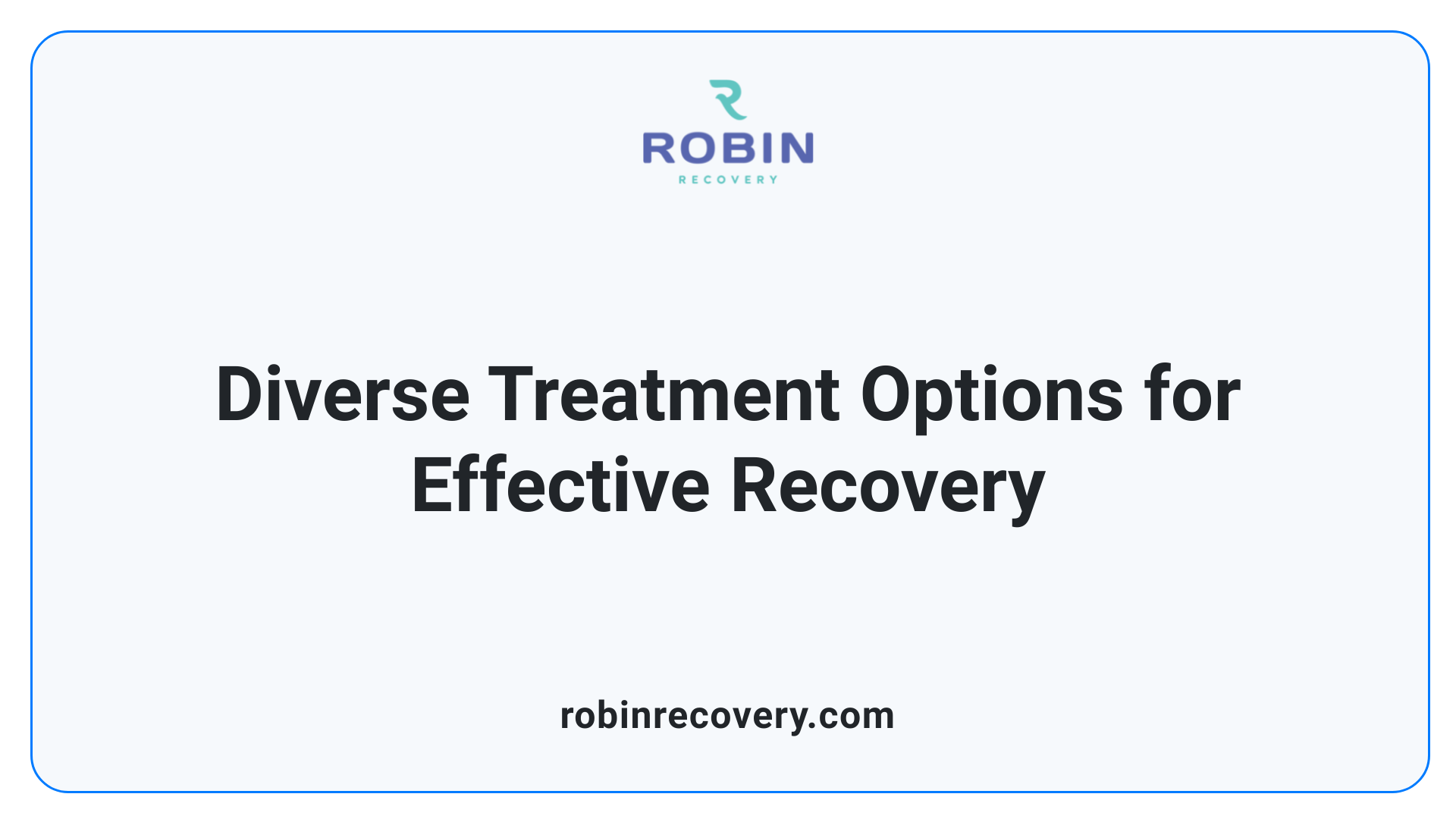
What are the treatment options for addiction?
There are various treatment options available for addiction, which can be categorized into medical treatment, therapy, and support groups.
Medical Treatment
- Medications: Medications play a vital role in addiction treatment. For instance, methadone and naltrexone are often utilized for managing opioid addiction, while medications like acamprosate aid in alcohol recovery. These medications help manage symptoms and cravings but are not considered cures.
- Withdrawal Management: A critical first step in treating substance use disorders (SUD) is medical management of withdrawal symptoms. This process may involve hospital-based detoxification to ensure safety and comfort.
Therapy
- Behavioral Counseling: Behavioral therapies, such as cognitive-behavioral therapy (CBT), are employed to help individuals change their attitudes and behaviors toward substance use. This facilitates the development of healthy coping strategies to replace drug-seeking behavior.
- Holistic Approaches: Some therapies incorporate spiritual practices like meditation, which have been shown to impact brain chemistry positively.
Support Groups
Support groups (e.g., Alcoholics Anonymous or Narcotics Anonymous) provide peer support, fostering a sense of community and shared experience among individuals facing similar struggles.
Integrated Treatment Approaches
A comprehensive treatment plan often addresses co-occurring mental health conditions that are frequently present alongside addiction, highlighting the need for an integrated approach. This involves combining medical treatment, personalized therapy, and ongoing support, allowing individuals to tackle addiction more effectively.
Research shows that early intervention and sustained engagement in treatment programs significantly improve outcomes, enabling many to rebuild their lives and maintain recovery.
Combining these methods offers a multifaceted approach to overcoming addiction, which is essential for effective recovery and long-term sobriety.
The Emotional Toll of Addiction on Relationships
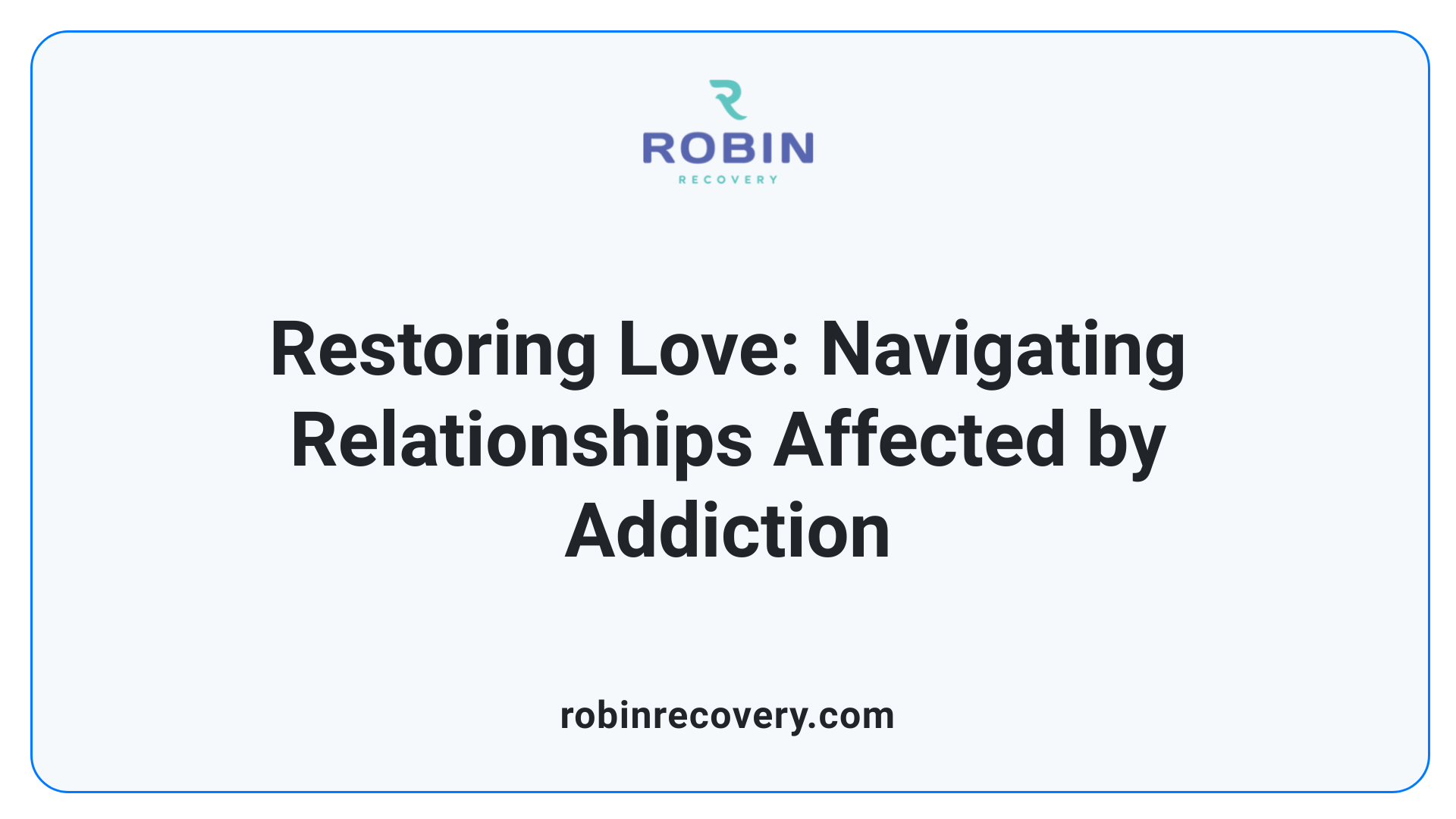
How does addiction affect one's capacity to love?
Addiction can drastically impair a person's emotional stability, which directly impacts their capacity to love. Individuals grappling with substance use often experience erratic mood swings and unpredictable behaviors. This instability can create barriers to forming deep, genuine connections with partners and loved ones.
As addiction progresses, emotional disconnection becomes prevalent. Partners of those addicted may feel neglected, leading to a deterioration of trust and communication. The deceitful behaviors often associated with substance abuse can result in feelings of betrayal, leaving emotional scars that hinder relationship recovery.
Moreover, because addiction can numb emotions, users may struggle to prioritize the needs of others. While the cycle of addiction often feels isolating, recovery presents a pathway to restore relationships. With appropriate support mechanisms in place, individuals can learn to rebuild trust.
Rebuilding Trust and Emotional Health
Through therapy and open communication, those affected by addiction can begin to address past harms and set healthier boundaries. Engaging in support groups allows individuals to share experiences and strategies for healthier interactions, fostering a more supportive environment.
Recovery is not a quick fix, but a journey that can lead to renewed emotional health and the ability to love deeply again. Efforts made during this process can transform relationships, helping both partners navigate the challenges of addiction and emerge stronger together.
Advancements in Treatment and Recovery Processes
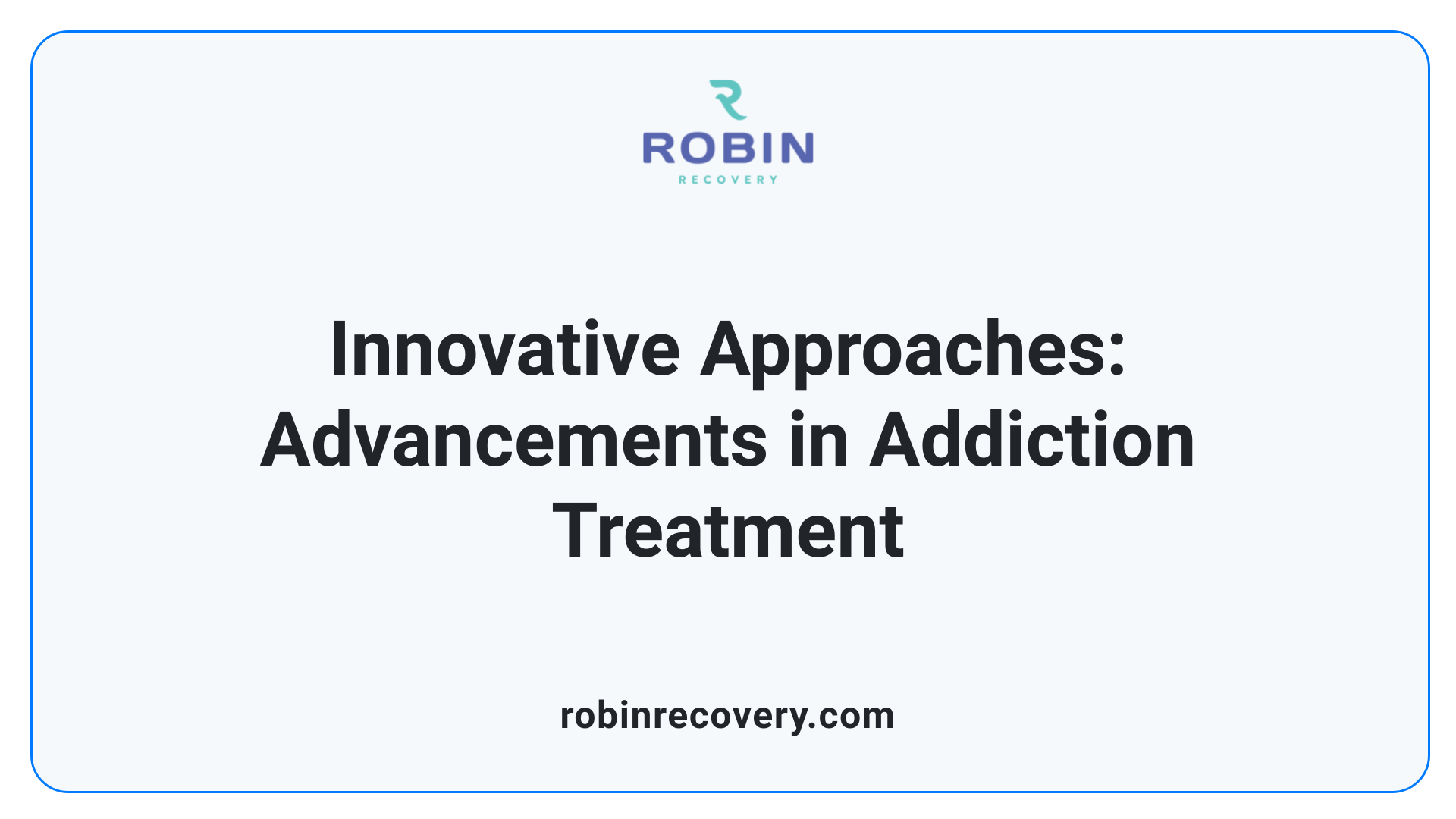
What are the current developments in addiction treatment?
Current advancements in addiction treatment emphasize a holistic and personalized approach, integrating various methods to address substance use disorders effectively. These developments are informed by research and a deeper understanding of addiction as a chronic brain disorder.
This comprehensive strategy includes:
- Medication: New pharmacotherapies have been introduced, targeting cravings and withdrawal symptoms with specific medicines tailored for substance use disorders, like opioids and alcohol. Medications such as Naltrexone and Acamprosate are used to support recovery, though they are not cures. They assist in managing symptoms and cravings associated with addiction.
- Therapeutic Techniques: Innovative therapy methods, particularly cognitive behavioral therapy (CBT), focus on modifying harmful behaviors and enhancing coping strategies that help individuals manage their addiction. Therapy may be personalized to meet the individual's unique challenges and circumstances.
- Support Systems: Modern recovery also includes expansive support systems. Traditional groups like Alcoholics Anonymous are complemented by newer digital platforms that cater to a broader audience, fostering a sense of community and sustained motivation.
With continuing research and the evolution of treatment approaches, individuals struggling with addiction can access a variety of resources that significantly improve recovery outcomes, paving the way for healthier lifestyles.
Misconceptions About Addiction and the Notion of Cure
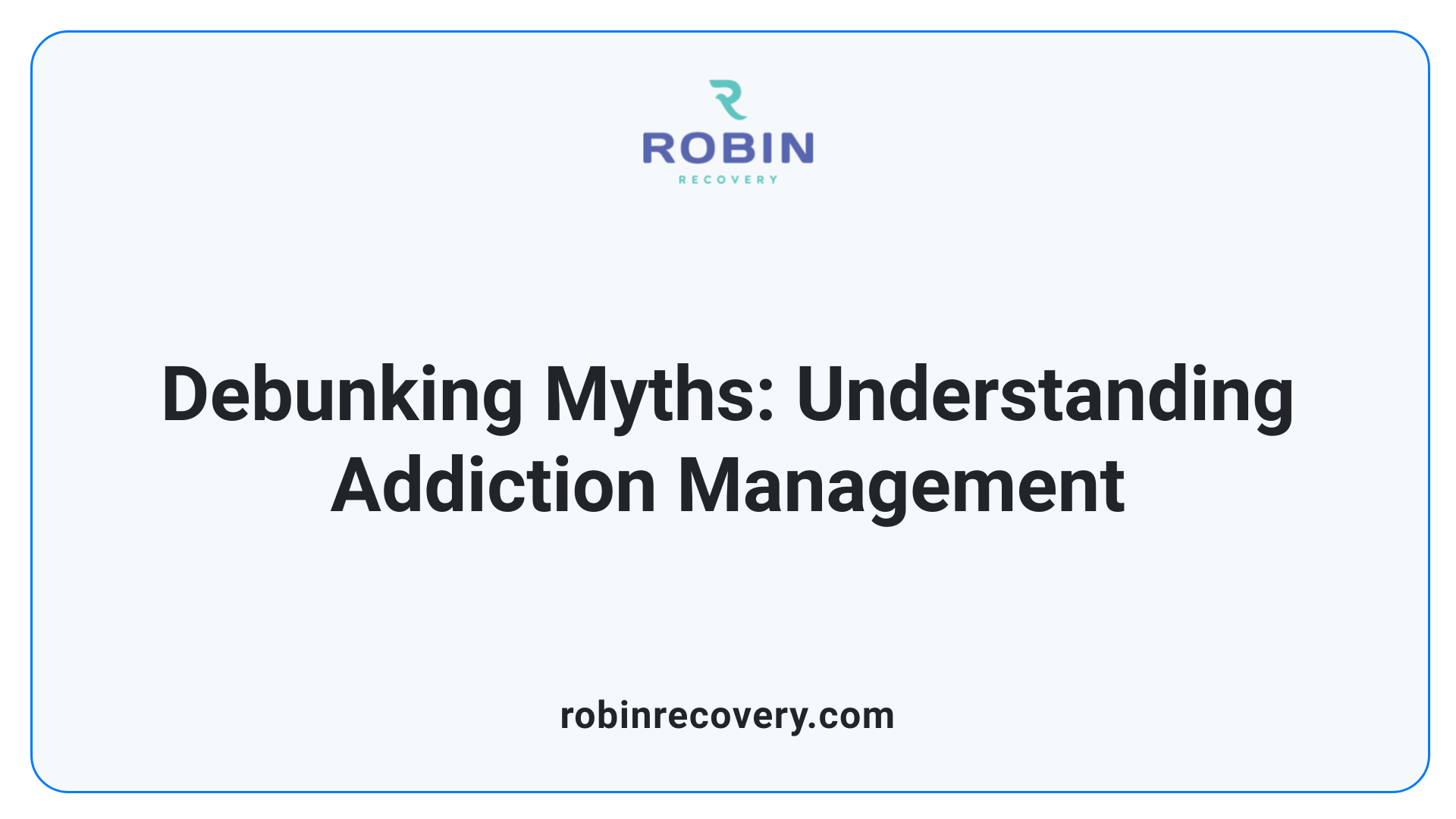
Challenging Misunderstandings
A prevalent misconception about addiction is the belief that it can be completely cured. Unlike infections that can be eradicated, addiction is regarded as a chronic condition similar to diabetes or heart disease, which requires ongoing management. Many still perceive relapse as a personal failure, instead of a typical part of the recovery journey. In reality, relapse is common and often indicates a need for adjustments in treatment rather than a personal shortfall.
Addiction impacts brain functionality, changing what rewards the brain seeks and how it processes pleasure. This complexity means that complete freedom from cravings is unlikely, which perpetuates misconceptions. Proper treatment allows individuals to develop healthier lifestyles, but cravings may persist, thus requiring continuous effort and vigilance.
Role of Long-Term Management
Long-term management plays a vital role in recovery from addiction. Studies show that about 70% of individuals with alcohol use disorder achieve lasting sobriety after a year in treatment. Various strategies, including behavioral counseling, medication, and support groups, contribute to sustained recovery. Effective treatment is personalized, reflecting the unique needs of each individual.
Access to resources, like SAMHSA’s National Helpline, helps those facing addiction navigate their treatment options. Rather than seeking a cure, individuals striving for recovery must focus on developing coping mechanisms and engaging with ongoing support systems to manage their condition effectively.
Exploring the Nature of Gambling Addiction
Characteristics and Treatment
Gambling addiction, also known as compulsive gambling, is a chronic condition characterized by the inability to control one’s gambling behavior despite the negative consequences. This disorder alters brain chemistry, affecting decision-making and impulse control. Many people struggling with gambling addiction experience cycles of relapse and recovery, indicating that treatment needs to be ongoing rather than a one-time solution. While there is no definitive cure for gambling addiction, effective treatment options exist. These may include therapy, counseling, support groups, and self-help strategies focused on promoting healthier behaviors and coping mechanisms.
Role of Professional Help and Support Systems
Seeking professional help is crucial in addressing gambling addiction. Trained therapists can delve into the underlying issues contributing to compulsive gambling, providing tailored support that is vital for recovery. In conjunction with therapy, support systems such as peer support groups allow individuals to share experiences and develop resilience against relapse. Active involvement in these recovery networks reinforces the commitment to overcoming addictive behaviors. Developing these strategies can help individuals manage their addiction and work towards leading fulfilling, balanced lives.
The Role of Medications in Addiction Treatment
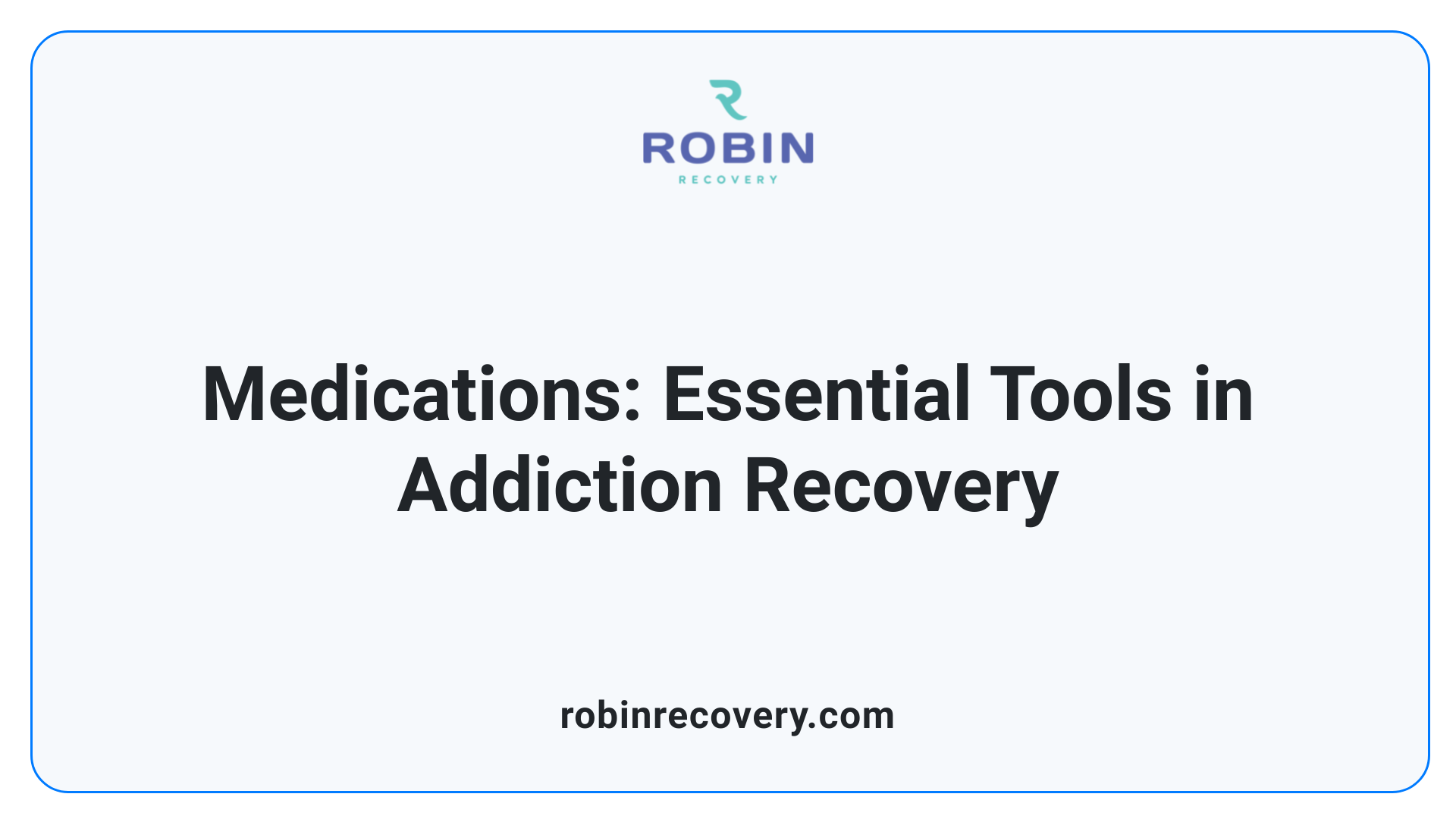
How Medications Support Recovery
Medications play a significant role in the treatment of addiction, particularly for substances like opioids, nicotine, and alcohol. They assist in restoring normal brain function and can help curb cravings, making it easier for individuals to engage in their recovery journey. For example, medications such as Naltrexone and Acamprosate are used to manage withdrawal symptoms and reduce the urge to consume alcohol, providing critical support alongside other treatments.
Additionally, medications can help alleviate withdrawal symptoms during detoxification. Options like lofexidine are designed to ease distress caused by withdrawal, which can be a strong barrier to quitting substance use. The use of these medications allows individuals to focus on therapeutic interventions, such as counseling and behavioral therapies, enhancing overall treatment efficacy.
Limitations of Medications as a Cure
While medications are essential in managing addiction, they do not constitute a cure. Treating addiction effectively requires a multi-faceted approach that includes therapy, support groups, and lifestyle changes. Medications can manage cravings and withdrawal but cannot eliminate the underlying psychological or environmental factors contributing to addiction.
Moreover, the risk of relapse remains even after medication use. Understanding that recovery is a lifelong process and that relapse can occur allows individuals to remain vigilant and committed to their treatment plans. Thus, while medications are beneficial tools in recovery, they must be part of a comprehensive strategy for successful long-term management of addiction.
Understanding the Chronic Aspect of Addiction
Comparing Addiction to Diabetes or Heart Disease
Addiction is recognized by major medical organizations, including the American Medical Association and the American Society of Addiction Medicine, as a chronic brain disorder. This classification emphasizes that like diabetes or heart disease, addiction cannot be cured but can be effectively managed through ongoing treatment.
Addiction alters brain structure and function, particularly the areas responsible for reward and decision-making. Therefore, just as diabetes requires continuous management of insulin levels and diet, addiction management involves a combination of therapy, medication, and lifestyle changes.
Why Addiction Requires Lifelong Management
Managing addiction is complex and requires lifelong commitment and support. Approximately 70% of individuals with alcohol use disorder achieve lifelong sobriety after at least one year of treatment. However, only 50% to 60% of those with drug addiction can expect similar outcomes. This illustrates the necessity of sustained engagement with treatment plans.
Effective management must also consider that relapse is a common aspect of the recovery process. It should not be viewed as personal failure, but rather as a signal to reassess and adjust the treatment strategy. Factors like genetic predisposition, environmental influences, and personal psychological challenges heavily impact recovery, further reinforcing the need for a personalized and ongoing approach to treatment.
The Importance of Support Systems in Recovery
Value of 12-Step Programs and Therapy Groups
Support systems play a critical role in addiction recovery, particularly through structured programs such as 12-Step initiatives. These programs foster a community where individuals share their experiences and challenges. They not only provide emotional support but also practical strategies for coping with cravings and triggers. Many find that participating in a group can enhance accountability, as members encourage each other to stay committed to their recovery goals.
Therapy groups offer another layer of support. Led by trained professionals, these sessions focus on exploring the underlying issues related to addiction. By addressing personal challenges and emotional barriers, group therapy helps individuals develop healthier coping mechanisms, increasing their chances of long-term sobriety.
Ongoing Support as a Key to Sobriety
Effective recovery does not end with initial treatment. Continuous support is crucial in maintaining sobriety, as it provides an ongoing network that individuals can rely on during tough times. Many long-term recovery success stories highlight the importance of these support systems in avoiding relapse. Studies show that participating in follow-up programs or peer support groups can significantly lower the risk of returning to substance use.
With tools and coping strategies developed through these support frameworks, individuals can maintain a healthier lifestyle. Importantly, recovery is viewed not just as a destination but as a lifelong journey that thrives on community and ongoing engagement.
Support Element Description Benefits 12-Step Programs Structured approach with mutual sharing Builds accountability and community support Therapy Groups Professional-led sessions for personal challenges Develops healthier coping strategies Ongoing Support Networks Continuous engagement in recovery resources Reduces relapse risk and enhances coping skills
The Path Forward: Managing Addiction for a Healthier Future
While addiction remains an incurable disease, it is, importantly, manageable and those affected can lead fulfilling lives through proper treatment and ongoing support. The combination of medical, therapeutic, and community resources provides a robust framework for recovery, emphasizing that addiction, while daunting, is not insurmountable. As research continues to evolve, treatment methodologies will improve, offering increased hope to those impacted. Understanding and accepting addiction as a chronic condition is crucial in framing the journey towards recovery — a path defined by resilience, support, and continuous personal growth.
References
- Teens Ask: “Is There a Cure for Addiction?”
- Stairway to Recovery: Can Addiction be Cured?
- SAMHSA's National Helpline
- Drug addiction (substance use disorder) - Diagnosis and treatment
- Does addiction last a lifetime? - Harvard Health
- Is Addiction Really a Disease? - IU Health
- Can Drug & Alcohol Addiction Be Cured? What You Should Know
- Addiction: What It Is, Causes, Symptoms, Types & Treatment
